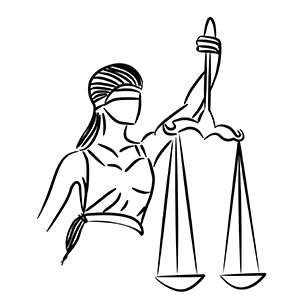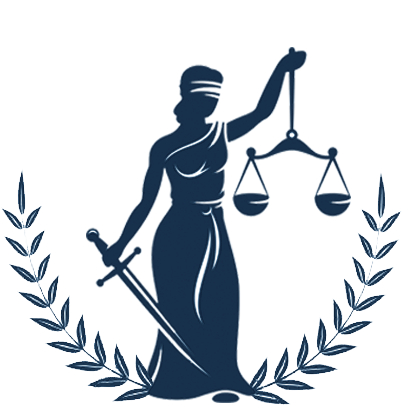Tribal Court Has Its Own Tribal Statutes
 Video Transcribed: What are your rights as a Native American if your child is taken by CPS and the case decides to be run through state court? Oklahoma Child Protective Services Attorney Ryan Cannonie, with CPS investigation defense. And I want to talk a little bit about some of the notice of rights that you’re supposed to receive as a Native American if your case is being run through state court.
Video Transcribed: What are your rights as a Native American if your child is taken by CPS and the case decides to be run through state court? Oklahoma Child Protective Services Attorney Ryan Cannonie, with CPS investigation defense. And I want to talk a little bit about some of the notice of rights that you’re supposed to receive as a Native American if your case is being run through state court.
Now, the first thing is when these cases happen, there’s an investigation, sometimes there’s a removal hearing, and then there’s the actual case getting started with the filing of the petition. Now, anybody has certain rights.
Everybody, whether you’re Native American or not, has certain rights in these cases. Rights to an attorney, the right to be notified of the hearings, to be given adequate time to prepare for that. Things like that.
So, here are some of the rights that are specifically stated to Native Americans and this is in the Indian Child Welfare Act. Now, the Indian Child Welfare Act, there’s a state version and there’s a federal version.
And the whole point of this is because, for decades, Native American children were taken from their homes and their culture. And then, by and large, were never given back to Native American families or were not adopted out to Native American families. And this led to a substantial erosion within different tribes of not only culture but membership as well.
And so the Indian Child Welfare Act was proposed and passed to kind of try to alleviate some of these issues. And since then, many states have adopted their own version but there’s also a federal version. You have to follow both federal and state versions. So the one I’m referring to right now is going to be the Oklahoma version.
This is found in Title X. It’s going to be in 40.4. And anytime a prosecutor’s filing a petition where a child is Native American, then they have to give these rights. And I’m going to read through them because there are quite a few of them.
The first is whenever they file it, the petition that they file the notice of, “Here’s all the allegations, here’s everything the court needs to know,” it’s going to have to include the name and tribal affiliation of the child. Then there’s going to have to be a notice given to the parents, which are biological parents or Indian custodians, and the tribe itself.
So potentially all three of the statement of rights. And these rights are to intervene in the proceeding, meaning that they have a right to be a party, to be heard, to be there, to file stuff in the proceedings, to address the court, to ask for different legal remedies while in court. They’ll become a full party.
Now, why is this important? It’s important because juvenile proceedings are the most part… Now, when you start talking about delinquent proceedings and getting into certification as an adult and things like that, there’s a difference.
But when you talk about deprivation, as in child neglect, child abuse, these are all confidential. They’re sealed. The public is not allowed to come in. If you’re not a party you’re not allowed to be there. The matters are confidential.
So you shouldn’t even know anything about them. And so being able to intervene means that you’re actually allowed to be a party in a case that by law, the judge can actually restrict who can even be a party into it.
So the other part of this is they have the right to petition the court to transfer the proceeding to a tribal court. Now, this is pretty important because I’ve done another video where it talks about how tribal court and state court, doesn’t follow the same law. A tribal court has its own tribal statutes.
They have their own policies and procedures, their own child welfare agencies. And so there are some times that people feel that it’s in their best interest, maybe to be in front of a tribal court, rather than be in front of the state court.
And so they can petition to have the tribe accept the case. Now, under the compact that the tribes have signed, at least the five tribes, have signed with the state of Oklahoma, they have the ability to take these cases and have jurisdiction over them and proceed on them, but they have… It’s at their option.
So you can petition the tribe to take your case, but the tribe can say, “No, I don’t want to mess with this. Keep it in state court.” And if they do that, there’s really not much you can do about it. The rights you have under the Indian Child Welfare Act is really just to ask the tribes to take it, to request it.
The next thing a Native American parent, or a custodian, or even a tribe can do is ask for an additional 20 days to respond. So when you get a petition sent to you, or when you finally get serviced, you have a certain time limit that you have to have that.
Usually, I think it’s like 48 hours. Or if you’re out of state, I believe it’s five days if I’m not mistaken, before the hearing. So there are sometimes you get that petition, you get serviced, and then the hearing’s coming up pretty quick. So they can request an initial 20 days to have time to get an attorney, to try to get their side together and try to fight this.
Another thing they can do… Or another thing, part of these rights and notices they have to be given, is a statement of all the legal consequences of adjudication and how it affects future custodial rights. That includes termination, how this can affect what they have to do. Just kind of has a little blurb in there about what adjudication actually means in the case. Also, a notice that they have the right to have counsel appointed to them.
There’s also the very last thing in there, and this is not so much to parents, but this is to tribal officials. So when you have to send this notice out, the tribe has to be notified as well as… Honestly, in addition to the BIA, the Bureau of Indian affairs, both the tribe and the BIA per law have to be notified. But this, as it relates to the tribe, the last notice says that they have to keep these matters confidential. So now under state court, these matters are confidential.
But when you send notice to the tribe of these cases, that has to be kept confidential as well. The tribe can’t take any information in this notice and go out and put it out there for public consumption. Now, most people would think, “Well, why… Yeah, we understand these should be confidential cases, but why would someone do that?”
Some of these cases are related to criminal cases a lot of times. They may be related to very large constitutional law questions. Deprive cases have a lot of breadth in how many areas of the law they actually touch because you’re not just dealing with children.
I mean, you’re dealing with families so you encompass a lot of family law there. The acts that we’re talking about are abuse or neglect, which encompass a lot of criminal law. So you have issues where constitutional law comes in because of people’s rights under the constitution, not just their rights as it relates to criminal offenses, but their rights to have, and be able to raise their own children. You have a constitutional right to raise your children.
So these are just a few of the things that Native American members need to be aware of whenever they start looking at a CPS case in state court and if they’re having a petition filed against them. If you have questions about this, if you’re in a situation where the state has filed a petition against you, if you need some advice on what to do or need an attorney, then please give us a call, go to our website, cpsinvestigationdefense.com, and give us a call and we will have an Oklahoma CPS attorney reach you.
